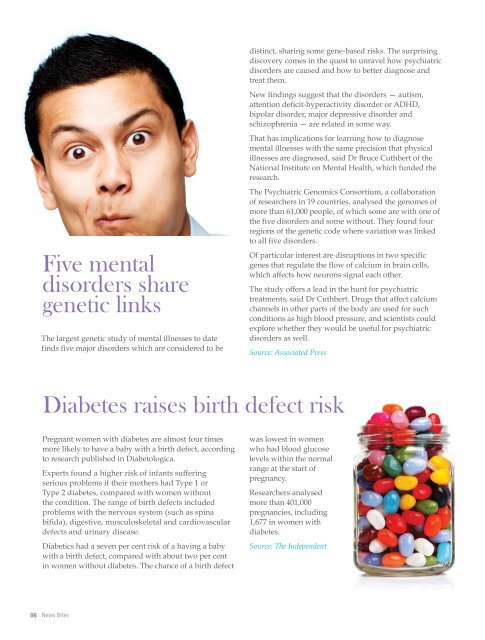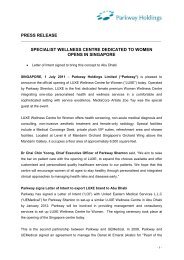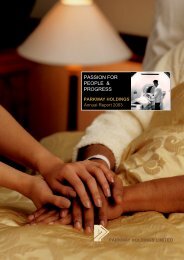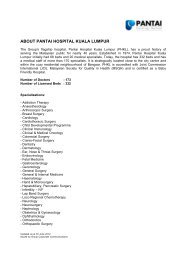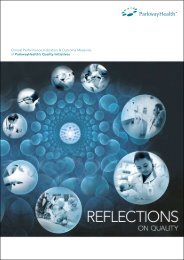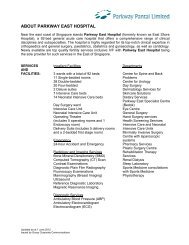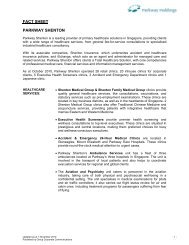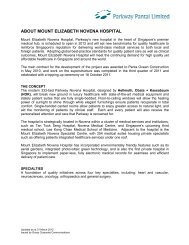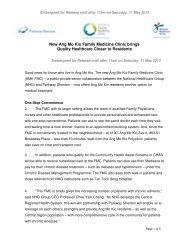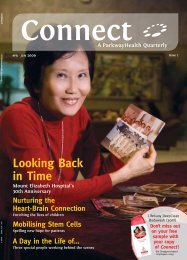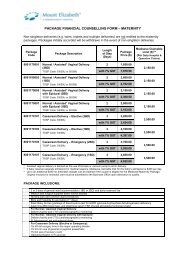Download - Parkway Pantai
Download - Parkway Pantai
Download - Parkway Pantai
Create successful ePaper yourself
Turn your PDF publications into a flip-book with our unique Google optimized e-Paper software.
distinct, sharing some gene-based risks. The surprisingdiscovery comes in the quest to unravel how psychiatricdisorders are caused and how to better diagnose andtreat them.New findings suggest that the disorders — autism,attention deficit-hyperactivity disorder or ADHD,bipolar disorder, major depressive disorder andschizophrenia — are related in some way.That has implications for learning how to diagnosemental illnesses with the same precision that physicalillnesses are diagnosed, said Dr Bruce Cuthbert of theNational Institute on Mental Health, which funded theresearch.Five mentaldisorders sharegenetic linksThe largest genetic study of mental illnesses to datefinds five major disorders which are considered to beThe Psychiatric Genomics Consortium, a collaborationof researchers in 19 countries, analysed the genomes ofmore than 61,000 people, of which some are with one ofthe five disorders and some without. They found fourregions of the genetic code where variation was linkedto all five disorders.Of particular interest are disruptions in two specificgenes that regulate the flow of calcium in brain cells,which affects how neurons signal each other.The study offers a lead in the hunt for psychiatrictreatments, said Dr Cuthbert. Drugs that affect calciumchannels in other parts of the body are used for suchconditions as high blood pressure, and scientists couldexplore whether they would be useful for psychiatricdisorders as well.Source: Associated PressDiabetes raises birth defect riskPregnant women with diabetes are almost four timesmore likely to have a baby with a birth defect, accordingto research published in Diabetologica.Experts found a higher risk of infants sufferingserious problems if their mothers had Type 1 orType 2 diabetes, compared with women withoutthe condition. The range of birth defects includedproblems with the nervous system (such as spinabifida), digestive, musculoskeletal and cardiovasculardefects and urinary disease.Diabetics had a seven per cent risk of a having a babywith a birth defect, compared with about two per centin women without diabetes. The chance of a birth defectwas lowest in womenwho had blood glucoselevels within the normalrange at the start ofpregnancy.Researchers analysedmore than 401,000pregnancies, including1,677 in women withdiabetes.Source: The Independent06 News Bites


